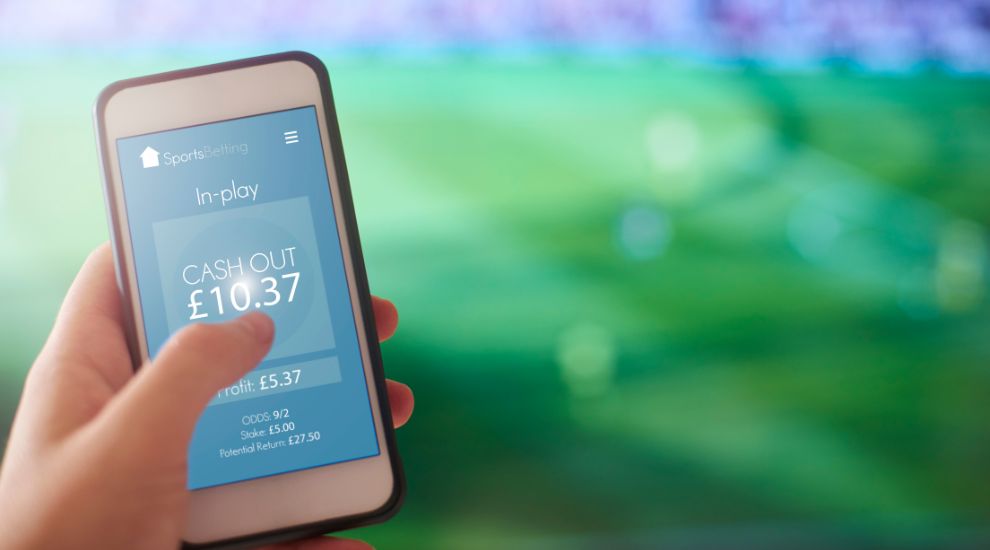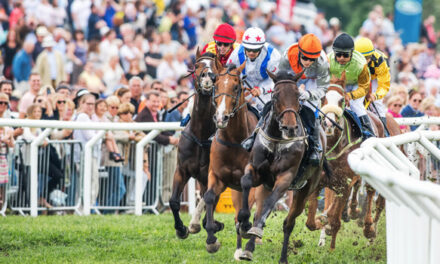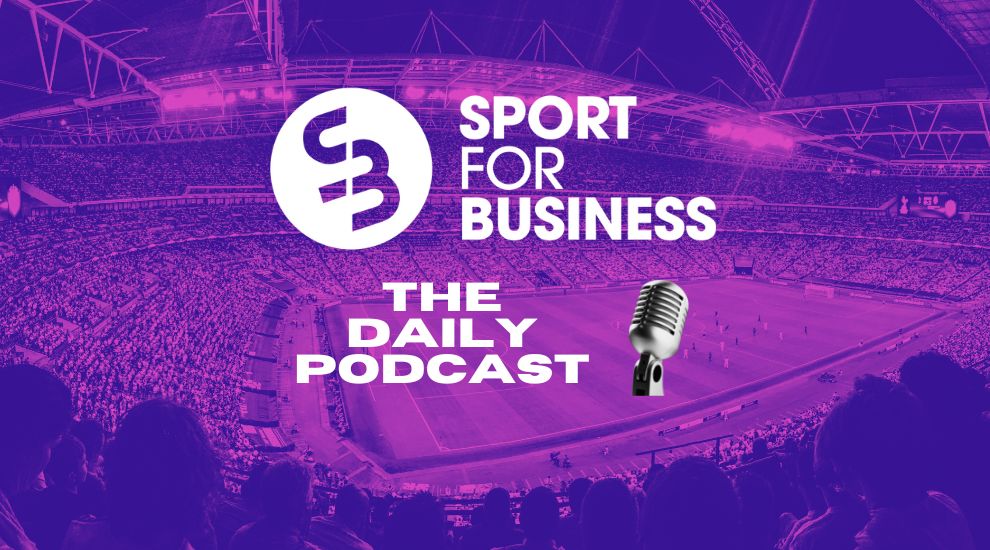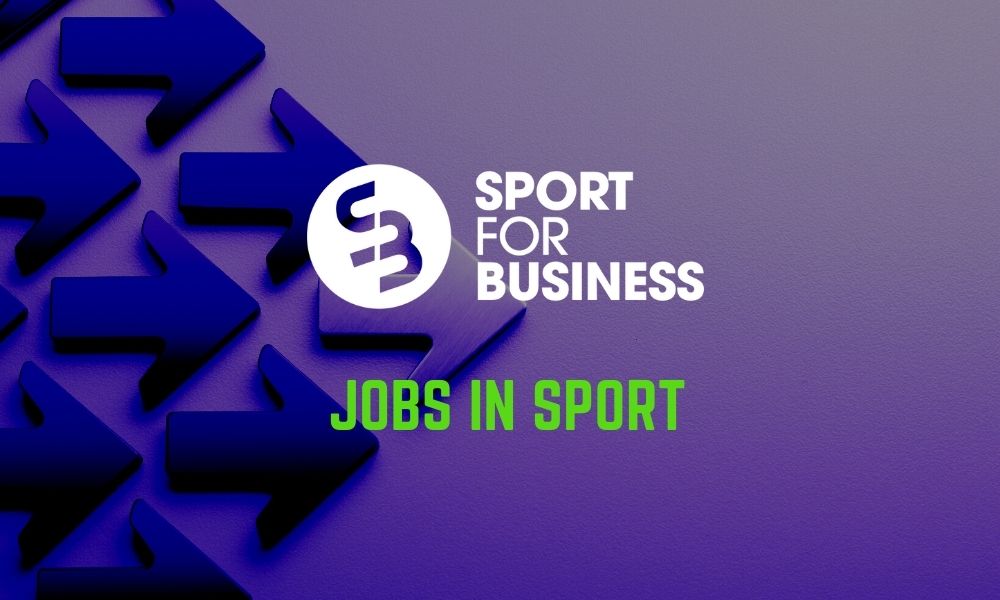As the 2025/26 Premier League football season kicks off in England, the visibility of gambling sponsorship in the top two divisions across the Irish Sea remains striking, despite well-publicised commitments to reduce its prominence.
The long-awaited withdrawal of front-of-shirt gambling deals from Premier League clubs will only come into force at the end of this campaign.
Until then, the league continues to feature a significant number of clubs displaying gambling brands on the most visible area of their kits.
Eleven Premier League clubs – Aston Villa, Bournemouth, Brentford, Burnley, Crystal Palace, Everton, Fulham, Nottingham Forest, Sunderland, West Ham United and Wolves – will enter the season with gambling companies as primary front-of-shirt sponsors.
Meanwhile, Championship clubs have no such voluntary limits in place, and several maintain close commercial ties with gambling operators, including Middlesbrough, QPR and Stoke City, who all have betting companies on the front of their shirts.
Betting on sport is a perfectly legal activity, enjoyed safely by the vast majority of those who wish to do so. We have Paddy Power, Boyle Sports, and William Hill within our membership, and all are responsible operators. I worked within the industry for 15 years. But care needs to be taken.
A Voluntary Phase-Out with Loopholes
In April 2023, the Premier League announced that clubs had collectively agreed to remove gambling companies from the front of matchday shirts by the end of the 2025/26 season.
The measure was widely interpreted as an effort to get ahead of government regulation. However, the agreement does not cover sleeve sponsorships, training kit branding, stadium advertising, or digital content.
The result is a compromise, with clubs maintaining access to the financial value of gambling partnerships while demonstrating some degree of self-regulation. Critics argue it is a halfway measure, symbolic but ineffective.
Further voluntary measures, such as the “whistle-to-whistle” ban on gambling advertising during live televised matches before 9 pm, have similarly been called out for their limited impact.
A study by the University of Bristol found that gambling marketing still appeared thousands of times during match broadcasts, particularly in pre- and post-game segments, and through in-game overlays, social media, and digital advertising boards.
In 2024, English football’s governing bodies introduced a Gambling Sponsorship Code of Conduct, based on principles of protection and social responsibility.
It included commitments like removing gambling branding from children’s replica shirts and family zones in stadiums, and requiring 20% of advertising space to promote responsible gambling.
But again, campaigners—including those with lived experience of gambling addiction—have said these measures fall short of offering meaningful protection, especially for young fans.
The Irish Contrast: A Growing Distance from Gambling Promotion
The contrast with Irish football and sport is becoming increasingly pronounced.
In the League of Ireland, there are currently no front-of-shirt sponsorships from gambling companies across either the Premier Division or the First Division. This reflects both a more cautious commercial environment and the legacy of efforts made in recent years to separate sport from gambling promotion.
In 2022, Bohemians announced a blanket ban on gambling sponsorship.
Speaking at the time, the club said the decision was part of its wider commitment to “build a football club that can be a force for good” and explicitly cited the links between gambling advertising and harm.
Other clubs, while perhaps not taking a public position, have similarly shied away from deals in this space. Even among brands associated with alcohol or other regulated industries, there has been a noticeable shift toward more holistic and community-focused partnerships.
This is also reflected in Sport for Business’ annual Sponsorship Insights, where gambling has all but disappeared from the main sponsor categories in Irish sport.
The GAA does not accept gambling sponsorship. Rugby has had limited historical associations, but none at provincial or national team level in recent years.
In Irish football, gambling brands have largely stayed in the background, with the FAI and League of Ireland clubs aligning more closely with community initiatives, mental health organisations, and socially responsible businesses.
Financial Realities vs Social Responsibility
In the Premier League, front-of-shirt gambling sponsorships are reported to be worth a combined £60 million per season.
For clubs outside the ‘Big Six’—many of whom operate on tight margins in spite of the league’s commercial strength—this is not a revenue stream easily replaced.
Yet, clubs in the League of Ireland, with vastly smaller commercial platforms, have resisted the lure of gambling sponsors. While some of this is a reflection of the brands themselves choosing not to invest, it also reflects a deeper cultural divergence.
Ireland’s Gambling Regulation Bill, expected to come into effect in 2026, includes strong provisions around the advertising of gambling products in sport.
The legislation is likely to prohibit certain forms of sponsorship and limit exposure, particularly where children or vulnerable groups are concerned. This has created a degree of certainty for rights holders and brands alike.
In England, however, there is continued uncertainty. The long-promised white paper on gambling reform was published in 2023, but the full legal and regulatory framework has yet to be implemented.
That leaves the game reliant on self-regulation—and, arguably, susceptible to regulatory capture by its own commercial interests.
The Role of Reputation and Public Pressure
While government regulation is a major factor, so too is the role of reputation management and fan pressure.
Clubs like Norwich City and Tranmere Rovers have publicly distanced themselves from gambling sponsorship, citing fan feedback and a desire to align with community values.
Others have had to walk back announcements of new deals after public backlash. And as awareness grows around gambling-related harm, particularly among young men, clubs are under increasing scrutiny.
In Ireland, that scrutiny has translated into proactive avoidance.
The Football Association of Ireland’s sponsorship deals with SSE Airtricity, Bank of Ireland, and other partners have offered a more progressive blueprint, leveraging sport’s influence for energy transition, financial inclusion, and social impact, rather than commercial gambling exposure.
What Happens Next?
The 2025/26 season is supposed to represent a turning point. It is the final year before the Premier League’s self-imposed ban on front-of-shirt gambling branding. But with loopholes intact and replacement revenue uncertain, many expect the sponsorships to simply shift to other visible assets—sleeves, shorts, training kits, and digital media.
In the absence of statutory limits, that’s where the line will likely be drawn, less visible, perhaps, but still present.
In Ireland, however, the momentum is flowing the other way. With upcoming regulation, a growing focus on social impact, and the absence of current partnerships with gambling operators, the sport is moving steadily toward a sponsorship landscape defined by long-term values rather than short-term revenue.
As English football grapples with how best to regulate its relationship with gambling, Irish football is emerging as a case study in what a more cautious, socially responsible approach might look like. Whether the Premier League’s voluntary restrictions will lead to meaningful change, or simply a rebranding of the same commercial ties, remains to be seen.
But in the meantime, Irish clubs and governing bodies appear to be making a different choice, one that places community integrity above commercial compromise.
Sport for Business Events
Find out More about Our Sport for Business Events Programme Here
The Latest Sport for Business Podcasts
Further Reading for Sport for Business members:
Check out more of our Sport for Business coverage of Betting and Gaming
WHAT’S UP NEXT?
Sport for Business is in planning for a number of major events bringing together leaders in Irish Sport and Business across a range of subjects in the second half of the year.
On Thursday, August 28th we will host a special event looking at Future Proofing Irish Sport including the use of AI in sport. Then in September we will host our Annual Children in Sport Conference, in October, our Annual Sport for Social Good Event, in November a new event focused on Sustainability in Sport and in December our 12th Annual Women in Sport Conference, in partnership with Lidl.
Find out More about Our Sport for Business Events Programme Here
MEMBERSHIP AND EVENTS
The FAI, GAA and IRFU, as well as all the leading sporting and business organisations in and around the world of sport are among the 300+ members of the Sport for Business community.
This includes all of the leading sports and sponsors, as well as commercial and state agencies, individuals interested in our world, and an increasing number from beyond these shores taking a keen interest in Ireland.
Our coverage of Gaelic Games is in partnership with AIB
Find out more about becoming a member today.
Or sign up for our twice-daily bulletins to get a flavour of the material we cover.
Sign up for our News Bulletins here.






























